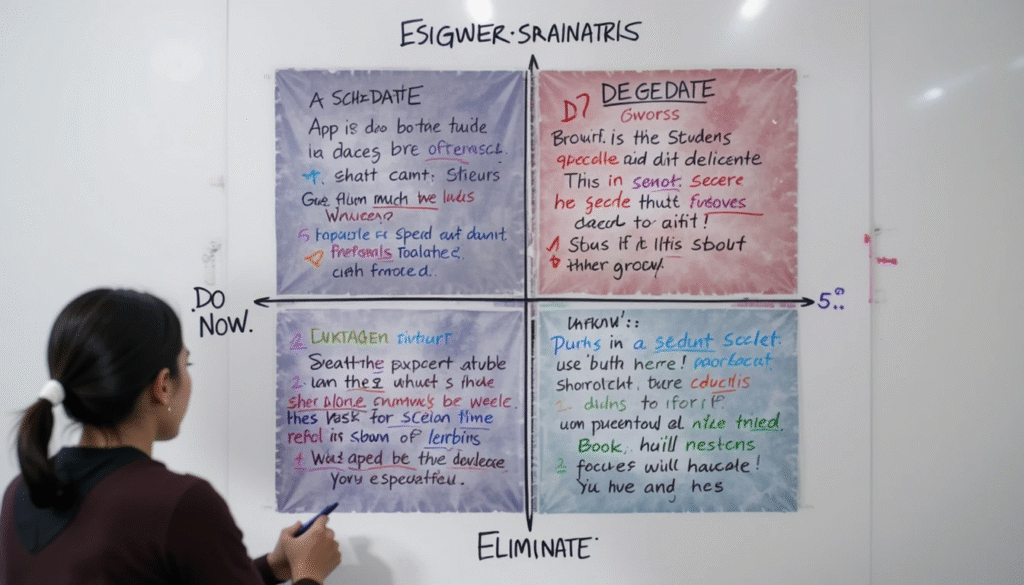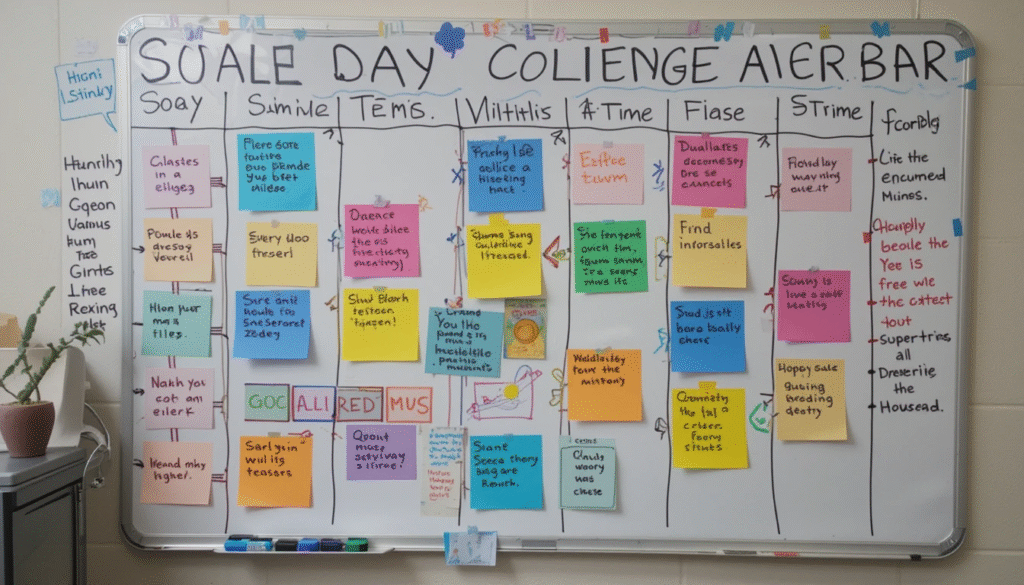College life is exciting, fast-paced, and full of opportunities. But it can also feel chaotic — juggling classes, assignments, jobs, extracurricular activities, and social life often leaves students overwhelmed.
If you ever find yourself thinking, “There’s not enough time in the day!”, you’re not alone.
The good news? With the right time management strategies, you can take control of your schedule, reduce stress, and actually enjoy your college journey.
Here are 10 practical and proven time management tips for college students that will help you stay organized, productive, and balanced.
🧭 1. Set Clear Priorities
Start by identifying what matters most. You can’t do everything — and that’s okay.
Ask Yourself:
- What tasks are urgent and important?
- What can be delayed, delegated, or dropped?
Use the Eisenhower Matrix (Urgent vs. Important) to separate your tasks into 4 categories. This helps you act instead of react.

🗓️ 2. Use a Calendar or Planner Religiously
Digital or paper — doesn’t matter. What matters is that you use it daily.
Use it to:
- Track assignment deadlines
- Plan weekly study blocks
- Schedule social time, workouts, and breaks
- Add exam dates, work shifts, and club meetings
Apps like Google Calendar, Notion, or MyStudyLife are excellent for organizing your academic and personal life.
Tip: Color-code your subjects or task types for quick visual clarity.
⏱️ 3. Break Tasks into Manageable Chunks
Big assignments often feel overwhelming and lead to procrastination.
What to do:
- Break each task into smaller, actionable steps
- Set micro-deadlines
- Reward yourself after completing each step
Example: Instead of “Write research paper,” break it down into:
- Research sources
- Write outline
- Write intro
- Complete main body
- Edit and proofread

⏳ 4. Follow the 2-Minute Rule
This simple rule is a game changer.
If a task will take less than 2 minutes, do it immediately.
Examples:
- Replying to a short email
- Putting away your laundry
- Jotting down a quick idea
- Refilling your water bottle
It keeps little things from piling up and stealing your focus.
📴 5. Eliminate Time Wasters
Let’s be honest — we all lose hours to mindless scrolling or multitasking.
What to avoid:
- Constantly checking your phone
- Watching “just one” episode
- Studying with multiple tabs open
- Unplanned naps or gaming sessions
Solutions:
- Use website blockers like Cold Turkey or Freedom
- Set screen time limits
- Schedule leisure time so you can enjoy it guilt-free
🧘 6. Build Routines & Stick to Them
Routines create rhythm. When you follow a consistent routine, you waste less energy deciding what to do next.
Sample Daily Routine:
- 7:00 AM – Wake up, stretch, and quick breakfast
- 8:00 AM – Review notes or prep for class
- 9:00–12:00 PM – Attend classes
- 1:00–4:00 PM – Study / assignments
- Evening – Gym, social time, or part-time work
- 10:00 PM – Wind down for bed
The key is consistency, not perfection.

🛏️ 7. Don’t Underestimate Sleep & Breaks
Time management isn’t just about doing more — it’s about working smarter. And that includes rest.
Sleep tips:
- Aim for 7–9 hours
- Avoid all-nighters before exams (they hurt more than help)
- Power naps (20–30 minutes) boost memory and focus
Breaks:
- Use the Pomodoro Technique (25 min work / 5 min break)
- Stretch, walk, or hydrate during breaks
Your brain performs best when well-rested and well-fed.
📚 8. Stay Ahead — Not Just on Time
Procrastination is the enemy of time management.
Here’s how to stay ahead:
- Review next week’s deadlines every Sunday
- Start assignments early, even if just outlining
- Complete readings before lectures
- Use waiting time (bus rides, office hours) to revise or organize
Being ahead reduces last-minute stress and improves your performance.
🧠 9. Learn to Say “No”
Your time is valuable. You can’t say yes to every hangout, every club meeting, or every shift.
Be selective:
- Choose activities that align with your goals
- Set boundaries with friends and roommates
- Politely decline when your plate is full
Saying “no” to others often means saying “yes” to your success.

✅ 10. Review and Adjust Weekly
Time management is an evolving skill.
At the end of each week, reflect:
- What worked well?
- Where did you lose time?
- What can you improve next week?
Make small tweaks to your schedule. Flexibility is important — life changes, and so should your plan.
Use Sunday evening as your weekly reset.
📈 Final Thoughts: Your Time = Your Power
College is one of the busiest — and most rewarding — chapters of your life. The secret to thriving isn’t doing everything, it’s doing the right things at the right time.
Time management helps you:
- Lower stress
- Perform better academically
- Have time for yourself and your passions
- Build discipline that lasts a lifetime
Start today with even just 2 or 3 of these tips. Your future self will thank you.
🧾 Quick Summary Table:
| Tip # | Time Management Strategy |
|---|---|
| 1️⃣ | Set clear priorities |
| 2️⃣ | Use a planner/calendar daily |
| 3️⃣ | Break tasks into chunks |
| 4️⃣ | Apply the 2-minute rule |
| 5️⃣ | Avoid time-wasters |
| 6️⃣ | Build routines |
| 7️⃣ | Prioritize sleep & breaks |
| 8️⃣ | Stay ahead, not just on time |
| 9️⃣ | Learn to say no |
| 🔟 | Weekly reviews & adjustments |
